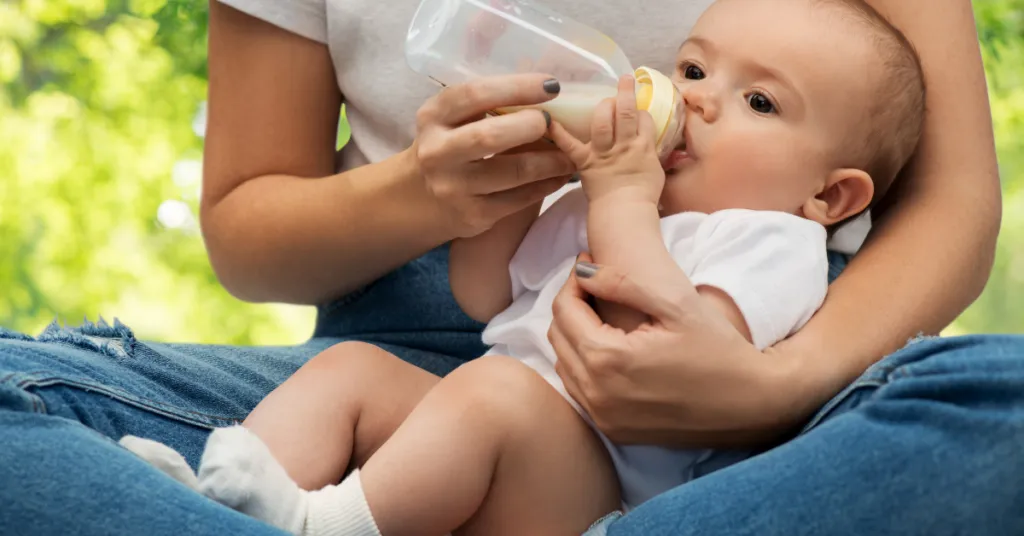
What You Should Know About Drinking Alcohol and Breastfeeding
Breastfeeding is a beautiful and natural way to nourish your baby. However, when it comes to drinking alcohol and breastfeeding, it’s important to exercise caution. Alcohol can pass through your breast milk and affect your baby’s development. The specialists at our national rehab facility discuss the potential effects of alcohol while breastfeeding and provide guidelines for safe and responsible alcohol consumption.
Can You Drink Alcohol While Breastfeeding?
Ultimately, to ensure your baby’s safety, it’s best to not drink alcohol while breastfeeding. When a nursing mother drinks, a small amount of alcohol passes through the blood into breast milk. Regular exposure to too much alcohol can affect the baby’s growth, development, and sleep.
Potential risks of consuming too much alcohol while breastfeeding include:
- Central nervous system: Alcohol can depress your baby’s central nervous system, leading to drowsiness, poor coordination, and difficulty breathing.
- Sleep patterns: Alcohol can disrupt your baby’s sleep, making it difficult for them to rest and recover.
- Feeding patterns: Alcohol can reduce your milk supply and interfere with your baby’s feeding patterns.
- Development: Long-term exposure to alcohol through breast milk can negatively impact your baby’s development and growth.
It’s important to note that even the smallest traces of alcohol in breast milk can affect your baby, especially if this pattern is continued over time. The effects of alcohol on a baby’s body can be more pronounced due to their smaller size and immature organs. This is especially true for newborns and infants under three months old, as their livers are still developing. They metabolize alcohol at about half the rate of adults. For this reason, it’s best to avoid combining alcohol and breastfeeding.
How Long Is Alcohol In Your System While Breastfeeding?
The alcohol level in breast milk is similar to the alcohol level in a nursing mother’s bloodstream. The duration that alcohol can be detected in a breastfeeding mother’s breast milk varies depending on several factors, including:
- Amount of alcohol consumed: The more alcohol consumed, the longer it will stay in the system and breast milk.
- Rate of consumption: Rapid consumption can increase the peak blood alcohol concentration.
- Body weight: A lighter individual may have a higher blood alcohol concentration for a given amount.
- Individual metabolism: Metabolic rate can influence how quickly the body processes alcohol.
Alcohol levels are the highest in breast milk 30 to 60 minutes after consumption. Additionally, alcohol can be detected in breast milk for 2 to 3 hours after consumption (per drink). This means that alcohol from 2 drinks can be detected for 4 to 5 hours in breast milk, and alcohol from 3 drinks can be detected for 6 to 8 hours. For heavier drinkers or those with slower metabolisms, it can take longer.
Does Alcohol Decrease Milk Supply?
While there isn’t conclusive evidence that alcohol directly decreases milk supply, it can disrupt breastfeeding patterns and the quality of breast milk in other ways. For example, drinking alcohol while breastfeeding can lead to:
- Reduced milk let-down: Alcohol can interfere with the milk let-down reflex, making it more difficult for the baby to feed.
- Changes in milk composition: Alcohol may temporarily alter the composition of breast milk, potentially affecting its nutritional value.
- Baby’s discomfort: Alcohol can cause drowsiness or irritability in the baby, making them less interested in feeding.
If you’re concerned about the effects of alcohol on your breastfeeding, it’s best to avoid drinking altogether or to pump and dump your milk after consuming alcohol. This will ensure that your baby is not exposed to any potential harmful effects.
How Long Should a Mother Wait to Breastfeed or Pump After Consuming Alcohol
According to the Centers for Disease Control and Prevention (CDC), it’s best to wait 2 hours (per drink) after drinking before breastfeeding again.1 This time will allow alcohol levels in breast milk to decline. If the mother cannot wait to feed her baby, she can feed milk that was expressed before when she was not drinking.
The CDC also advises that mothers can express or pump milk after consuming alcohol to ease any physical discomfort of engorgement or to adhere to their pumping schedule. If a mother expresses or pumps milk within 2 hours of drinking alcohol (per drink), she can safely discard the expressed milk. This is a practice known as pumping and dumping.1
Legacy Healing Center strongly recommends that breastfeeding mothers avoid alcohol consumption while nursing. If you’re unsure about drinking while breastfeeding or pumping, please consult with a healthcare professional for personalized advice.
Alcohol and Nursing Mothers: Do You Have A Drinking Problem?
If you’re struggling with alcohol abuse and are also a breastfeeding mother, it’s important to seek help.
Signs of alcohol abuse in nursing mothers:
- Increased alcohol tolerance: You find yourself needing more alcohol to achieve the same effects.
- Unsuccessful attempts to cut back or quit: You’ve tried to reduce your alcohol intake but haven’t been successful.
- Negative consequences: Alcohol interferes with your responsibilities, relationships, or health.
- Cravings: You have a strong desire to drink, even when it’s inconvenient or harmful.
- Physical dependence: You experience withdrawal symptoms when you try to stop drinking.
If you recognize these signs in yourself, it’s time to seek help. Legacy Healing Center offers specialized programs for women battling alcohol abuse. The team at our drug rehabs can provide you with the support and resources you need to regain your sobriety and become a healthy, happy mother.
Don’t let alcohol addiction interfere with your ability to nurture your child. Reach out to us today to learn more about our alcohol rehab and how we can help you on your journey to recovery.
Source:
Centers for Disease Control and Prevention (CDC) – Breastfeeding special circumstances: Alcohol






 Verify Insurance
Verify Insurance